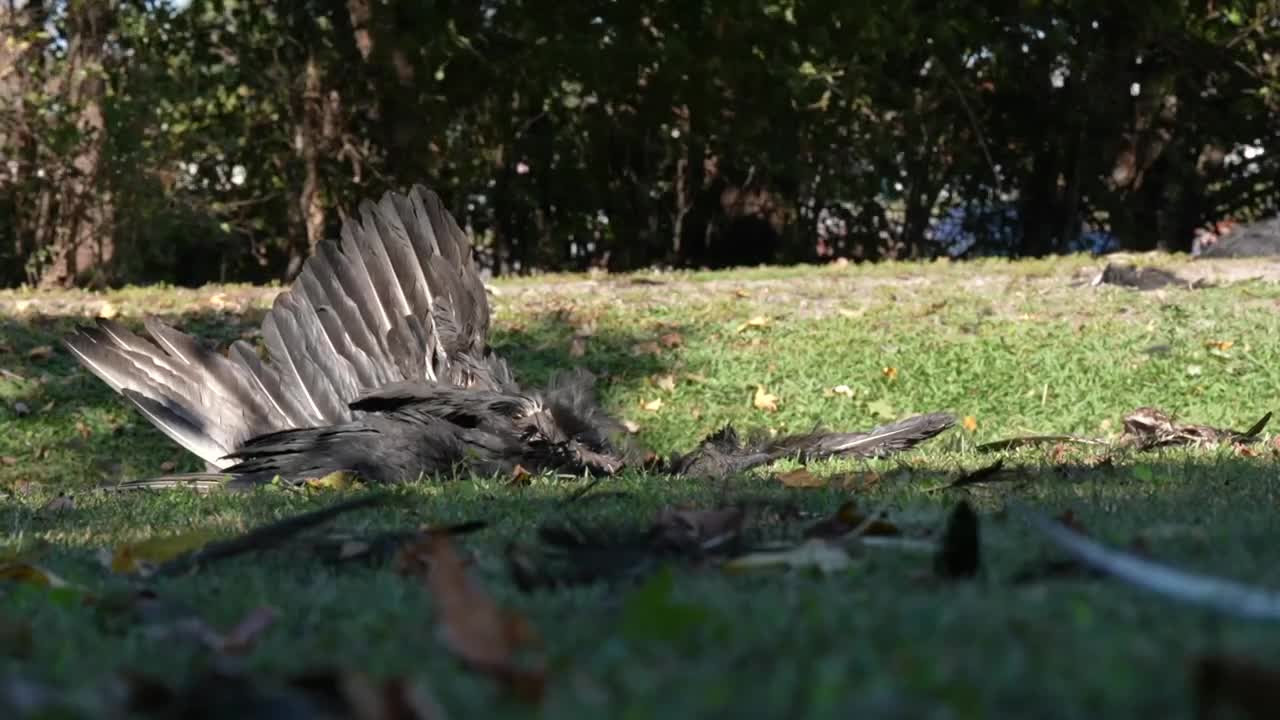RICHMOND, Va. — Three months after CBS 6 first reported on dead black vultures at Roslyn Landing Park in Colonial Heights, the problem persists. Scattered feathers and a trail of dead black vultures lined the park entrance in mid-October, mirroring the same scene from July when CBS 6 first brought community concerns to park officials and the Department of Wildlife Resources.
"I feel bad for the vultures, first of all, and any dead animal you want cleaned up, because it's going to contaminate the ground," park goer Dee Raglan said. "It's going to contaminate other animals that eat it. You don't know what it died of. It gets into our water system. And it's not just this water. It connects to all the waters that you know, all the lakes and rivers. It's all connected."
These contamination concerns come days after a recent DWR report indicated federally protected birds of prey around Virginia have died from H5N1, a pathogenic avian flu.
DWR sent a biologist to Roslyn Landing Park to test the dead vultures after unsuccessful attempts over the summer due to decomposition.
Results should be available next week.
"Although disease activity is currently centered in black vultures, with migration season beginning, it is likely there will be mortalities in other bird species as well," a DWR news release explained.
Watch: Vulture carcasses discovered in Colonial Heights park (July 2025)
The park has hired a contractor and says they plan to dispose of the vultures.
DWR advises anyone who sees five or more dead vultures in the same area within five days to call the Virginia Wildlife Conflict Helpline at 1-855-571-9003 or email wildlifehealth@dwr.virginia.gov.
Additionally, anyone who observes the following is also asked to call the helpline:
- Five or more dead waterfowl, shorebirds, or seabirds in the same area within five days
- Sick or dead eagles, hawks, owls, or turkeys, excluding ones found on the road
- Ten or more dead wild birds of any species in the same area within five days
DWR also advised the public to avoid picking up or handling sick or dead wild birds.
"If you must dispose of a dead bird on your property, wear rubber gloves and other personal protective equipment, such as a mask and eye protection," the news release said. "Dead birds should be buried or double bagged and disposed of in a secured outdoor trash can or landfill. After disposing of the carcass, wash hands thoroughly with soap and water or use an alcohol-based hand sanitizer, and disinfect clothing, and shoes."
This is a developing story. Email the CBS 6 Newsroom if you have additional information to share.
📲: CONNECT WITH US
Blue Sky | Facebook | Instagram | X | Threads | TikTok | YouTube
This story was initially reported by a journalist and has been converted to this platform with the assistance of AI. Our editorial team verifies all reporting on all platforms for fairness and accuracy. To learn more about how we use AI in our newsroom, click here.







